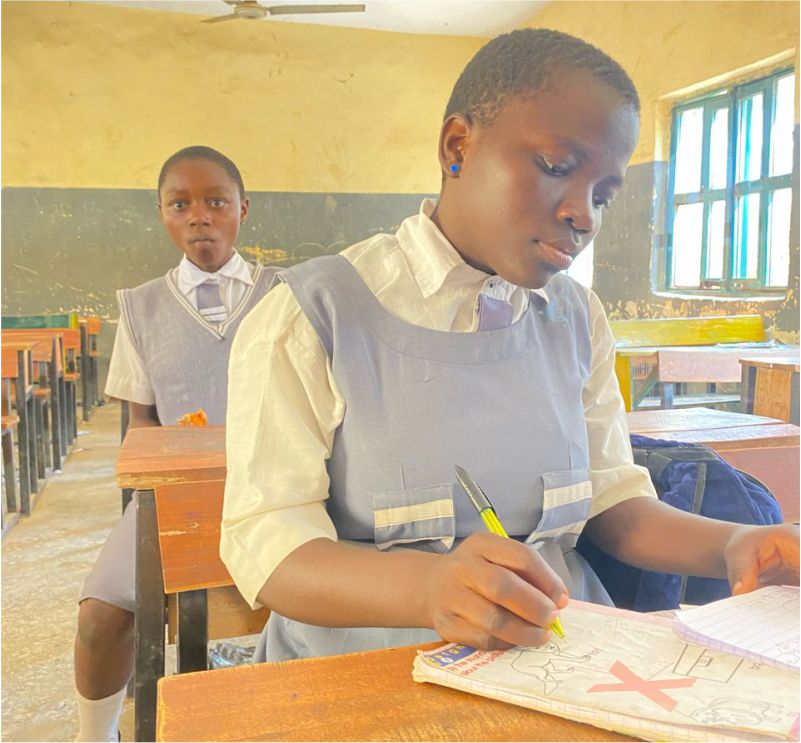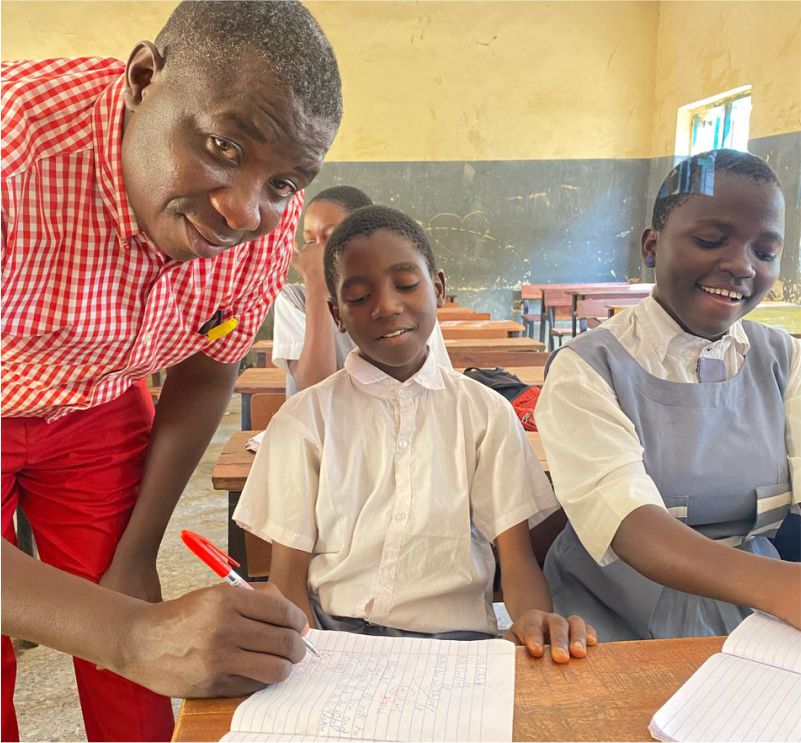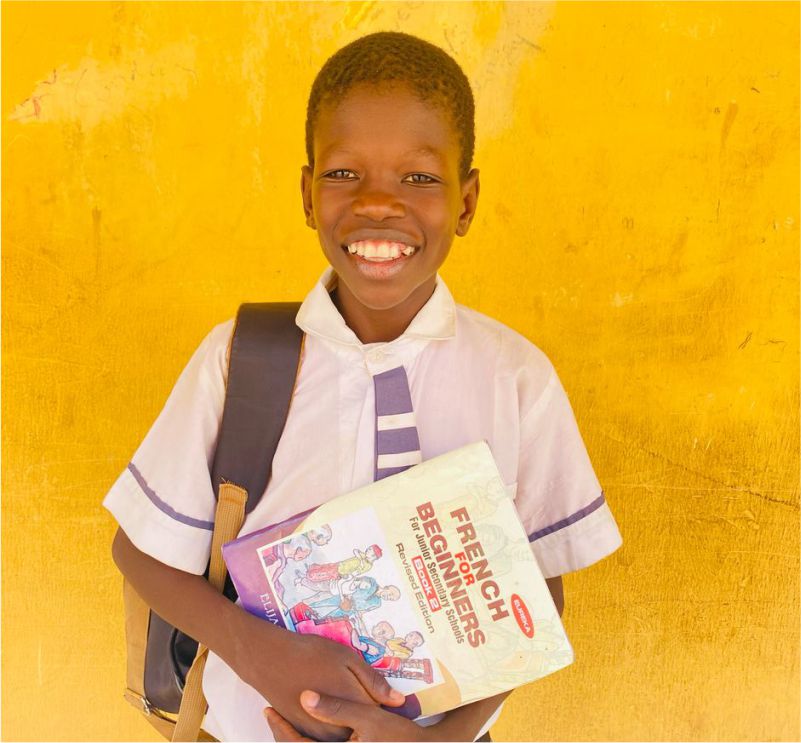
Secondary school enrichment program (SSEP)
Personal and Family Challenges:
• Economic pressures requiring youth to contribute to family income (farming for boys, garment production for girls)
• Extensive domestic responsibilities including childcare and household maintenance
• Time-intensive extracurricular religious studies Cultural and religious biases that devalue formal education
• Inadequate home infrastructure for studying (limited space, poor lighting, lack of materials)
Institutional Challenges:
• Limited teaching resources and outdated materials
• Inconsistent teacher qualifications and training
• Irregular school schedules due to funding constraints
• Inadequate facilities and infrastructure

Our Comprehensive Response
Education Plus launched the Secondary School Enrichment Program (SSEP) in 2023 to address these multifaceted challenges through a holistic approach:
1. Academic Talent Identification and Financial SupportWe identify the most academically promising students in our target communities who are transitioning from primary to junior secondary school. These selected students receive annual stipends covering:
• School enrollment fees
• Required textbooks and materials
• Uniform costs
• Examination fees
This financial support removes a critical barrier that would otherwise prevent many talented students from continuing their education.
2. Academic Enrichment and AccelerationTo overcome the limitations of overcrowded classrooms and interrupted learning, we provide intensive after-school tuition four times weekly in core subjects:
• Mathematics: Building problem-solving skills and numerical fluency
• English: Developing reading comprehension, writing proficiency, and communication skills
• Science: Strengthening analytical thinking and scientific literacy
This supplementary instruction consolidates in-school learning, accelerates academic progress, and helps students advance to senior secondary school—ideally on a fast-track basis.
3. Psycho-emotional SupportEach student receives ongoing one-on-one support from a dedicated counselor trained to address the unique psychological challenges facing displaced youth. These regular sessions:
• Help process trauma and build resilience
• Develop healthy coping mechanisms
• Provide a safe space for expressing concerns and fears
• Build self-confidence and positive identity
• Address specific learning barriers related to psychological stress
This component is essential for academic success, as unaddressed trauma significantly impairs learning capacity.

Recognizing the additional barriers facing young women, we have developed a targeted component for female students transitioning from junior to senior secondary school:
• Enhanced stipends covering the increased costs of senior secondary enrollment
• Specialized tutoring in subjects where gender gaps traditionally emerge
• Mentorship from female professionals and university students
• Life skills workshops addressing gender-specific challenges
• Family engagement addressing cultural barriers to female education
We directly confront the issue of early marriage through a two-pronged approach:
Thorough screening of incoming students and their families to identify those most committed to completing secondary education
Regular counseling for parents and students emphasizing the economic and social benefits of delayed marriage and completed education
Community workshops challenging harmful traditional practices
Success stories highlighting achievements of female graduates
Current Status and Expansion GoalsOur current SSEP cohort comprises students who are showing remarkable academic progress and retention rates. With additional resources, we aim to:
• Expand our services to reach more students and families across additional settlements
• Implement technology-enhanced learning and progress tracking
• Develop more robust data collection to measure and demonstrate our impact
• Create peer mentoring networks and alumni support structures
• Establish pathways to tertiary education and career development



